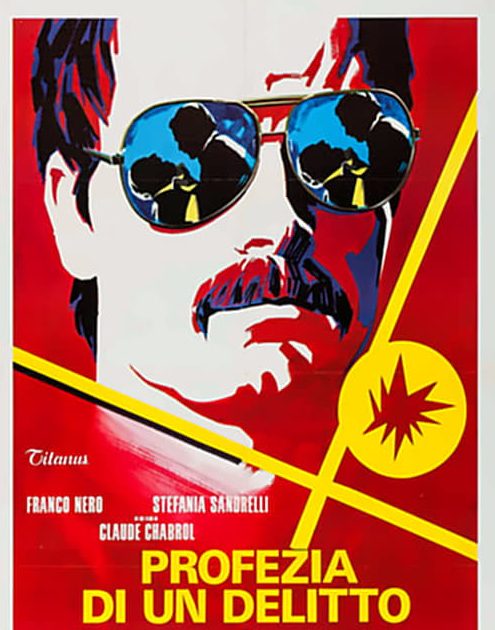A twisted journey into crime and the human psyche, from one of the most elusive masters of international thrillers
A profoundly unsettling work, which will keep you glued to your seat
The cinema of Claude Chabrol nourishes itself on an apparent contradiction: on one hand, the meticulous sculpting of extraordinarily precise narrative mechanisms, while on the other hand, the constant probing of the darkest and most unpredictable depths of the human psyche (or perhaps better say, the bourgeois psyche). In short: a rigour that, from one moment to the next, risks falling to bits under the blows of madness. Profezia di un delitto deepens the unsettling and surprising character of Chabrol’s cinema, taking us into an extremely tense narrative: as soon as we think we have guessed the direction it is taking, we realise that once again we are lost. The film is a play of mirrors that confuses reality with fiction, an illusory affirmation about the control the director wields over his own machinations. It begins with parapsychology and ends with Shakespeare’s Julius Caesar (“The fault, dear Brutus, is not in our stars\But in ourselves, that we are underlings”). A film that will have you glued to your seat.
On a boat heading towards the Tunisian island of Djerba, the idle Edouard meets a fortune teller who predicts a crime. Edouard decides to make the prophecy come true, and starts plotting against Sadry and Sylvia, a couple in crisis. The situation becomes more complicated when an ex-lover of the husband’s enter onto the scene. Edouard’s plan is perfect. Or so it seems.
A twisted journey into crime and the human psyche, from one of the most elusive masters of international thrillers
A profoundly unsettling work, which will keep you glued to your seat
The cinema of Claude Chabrol nourishes itself on an apparent contradiction: on one hand, the meticulous sculpting of extraordinarily precise narrative mechanisms, while on the other hand, the constant probing of the darkest and most unpredictable depths of the human psyche (or perhaps better say, the bourgeois psyche). In short: a rigour that, from one moment to the next, risks falling to bits under the blows of madness. Profezia di un delitto deepens the unsettling and surprising character of Chabrol’s cinema, taking us into an extremely tense narrative: as soon as we think we have guessed the direction it is taking, we realise that once again we are lost. The film is a play of mirrors that confuses reality with fiction, an illusory affirmation about the control the director wields over his own machinations. It begins with parapsychology and ends with Shakespeare’s Julius Caesar (“The fault, dear Brutus, is not in our stars\But in ourselves, that we are underlings”). A film that will have you glued to your seat.
On a boat heading towards the Tunisian island of Djerba, the idle Edouard meets a fortune teller who predicts a crime. Edouard decides to make the prophecy come true, and starts plotting against Sadry and Sylvia, a couple in crisis. The situation becomes more complicated when an ex-lover of the husband’s enter onto the scene. Edouard’s plan is perfect. Or so it seems.
